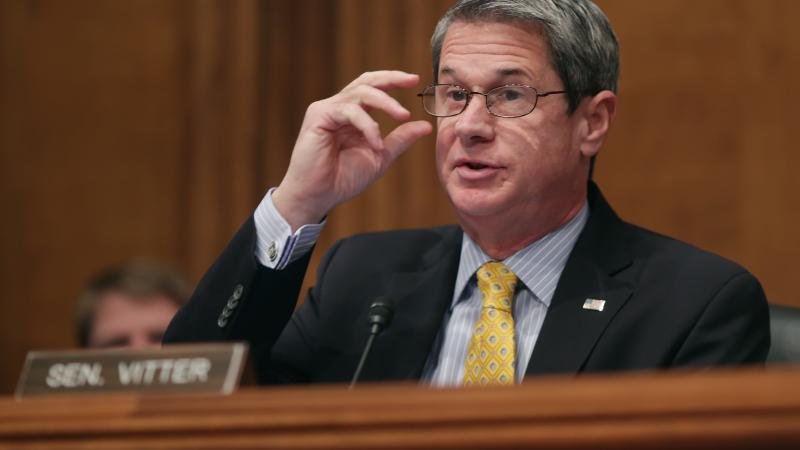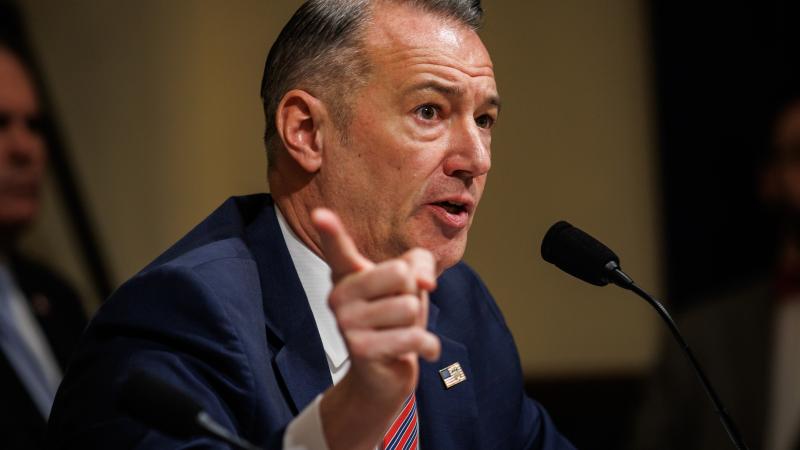Virginia crime commission outlines potential legislation
Among the issues: use of license plate readers by law enforcement, the sealing of criminal records in the commonwealth, and the work of a deceased forensic examiner.
The Virginia State Crime Commission’s last meeting gave a glimpse into issues the General Assembly will likely address through legislation in its 2025 session: the use of license plate readers by law enforcement, the sealing of criminal records in the commonwealth, and the work of a deceased forensic examiner.
The commission’s deputy director, Colin Drabert, presented a report to the commission’s General Assembly members containing policy recommendations on those issues, each of which had been the subject of a 2024 commission report.
Several Virginia lawmakers introduced legislation in the last session hoping to create statewide regulation of license plate reader systems.
Law enforcement agencies in the commonwealth currently operate by the standards they devise internally or adopt from other jurisdictions, but there is nothing in Virginia law governing law enforcement’s use of them. At least 18 states “regulate law enforcement use of ALPR at a statewide level,” according to a November report presented to the commission.
Drabert provided a long list of things potential legislation on LPRs could address in his report – many of which appeared in last year’s failed legislation.
Legislation could define permissible or prohibited uses of automatic license plate readers by law enforcement or codify penalties for misusing the technology. It could also put limits on how long law enforcement could store or access the data, prohibit its sale, and restrict how it’s shared with other agencies or organizations.
A big change is coming to Virginia’s sealing laws – laws governing public access to criminal records – in 2025. Part of a 2021 law will go into effect in October, facilitating the automatic sealing of nine misdemeanor criminal convictions in the commonwealth if the perpetrator has not been convicted of any other crimes within seven years of the original offense.
In July, Class 5 and Class 6 felonies will become eligible for petition sealing if the perpetrator has not been convicted of any other crimes within a 10-year period, according to the Legal Aid Justice Center.
The General Assembly may want to create legislation prohibiting the petition sealing of sex crimes, domestic partner crimes, stalking, violent felonies and DUI maiming, according to Drabert’s report. That would cause those crimes to remain a publically accessible part of a person’s criminal record.
Lawmakers may also want to consider legislation sealing all marijuana possession offenses or authorizing the sealing of ancillary matters like suspended sentences and probation violations, failure to appear, and bond appeals.
In all, there were 22 issues listed in Drabert’s report regarding potential amendments to Virginia’s sealing laws.
Finally, Drabert also recommended that the General Assembly include language in its budget proposal concerning criminal cases involving deceased forensic examiner Mary Jane Burton.
Burton was the subject of a 2023 podcast episode by media outlet VPM that alleged she was responsible for discrepancies, errors, and alternations of test results and misleading testimony in court. Lawmakers could use budget language to create a panel to review approximately 250 cases where Burton was the forensic examiner.
“Collected information could be provided to attorneys who are representing or considering representing impacted individuals,” if found relevant, according to the report.















